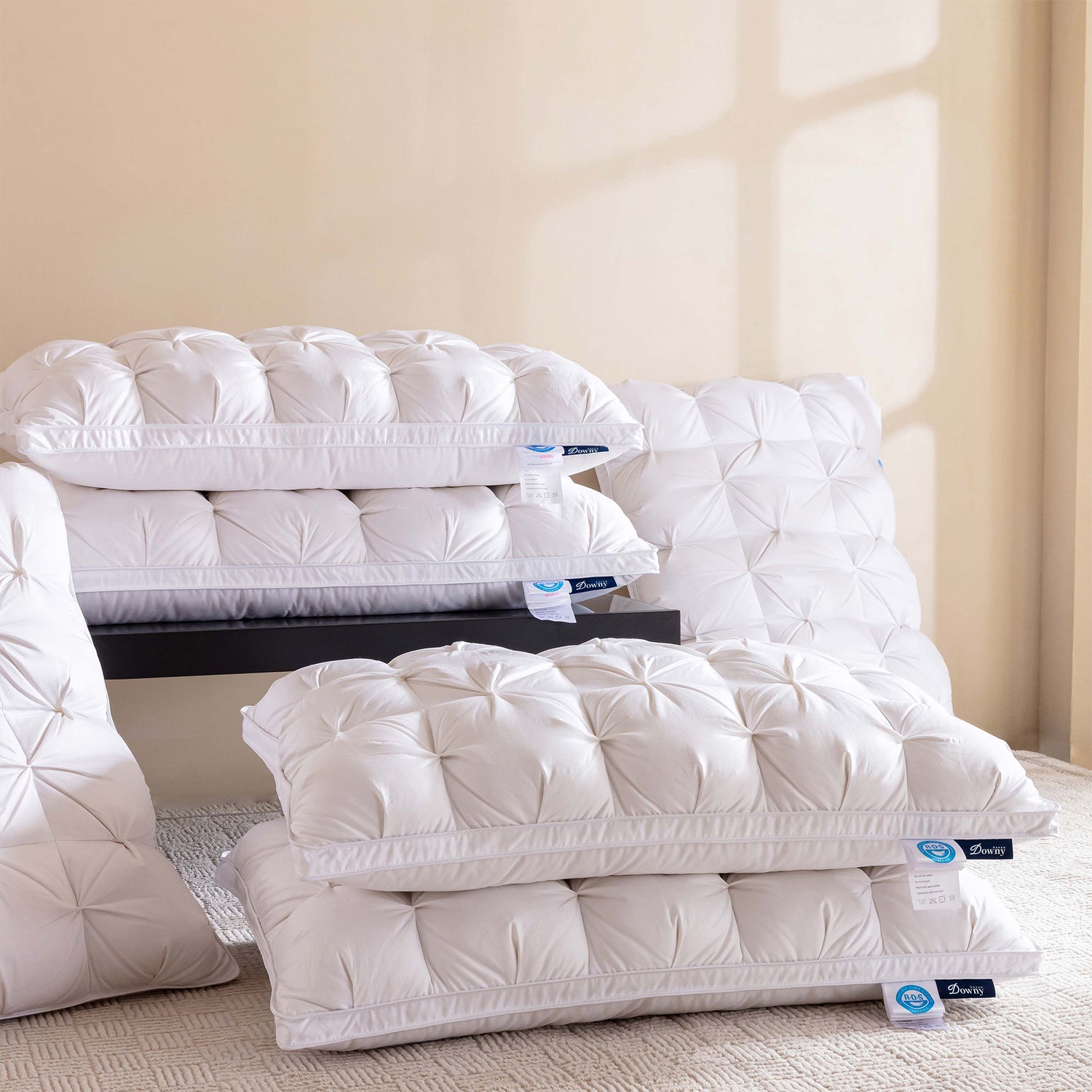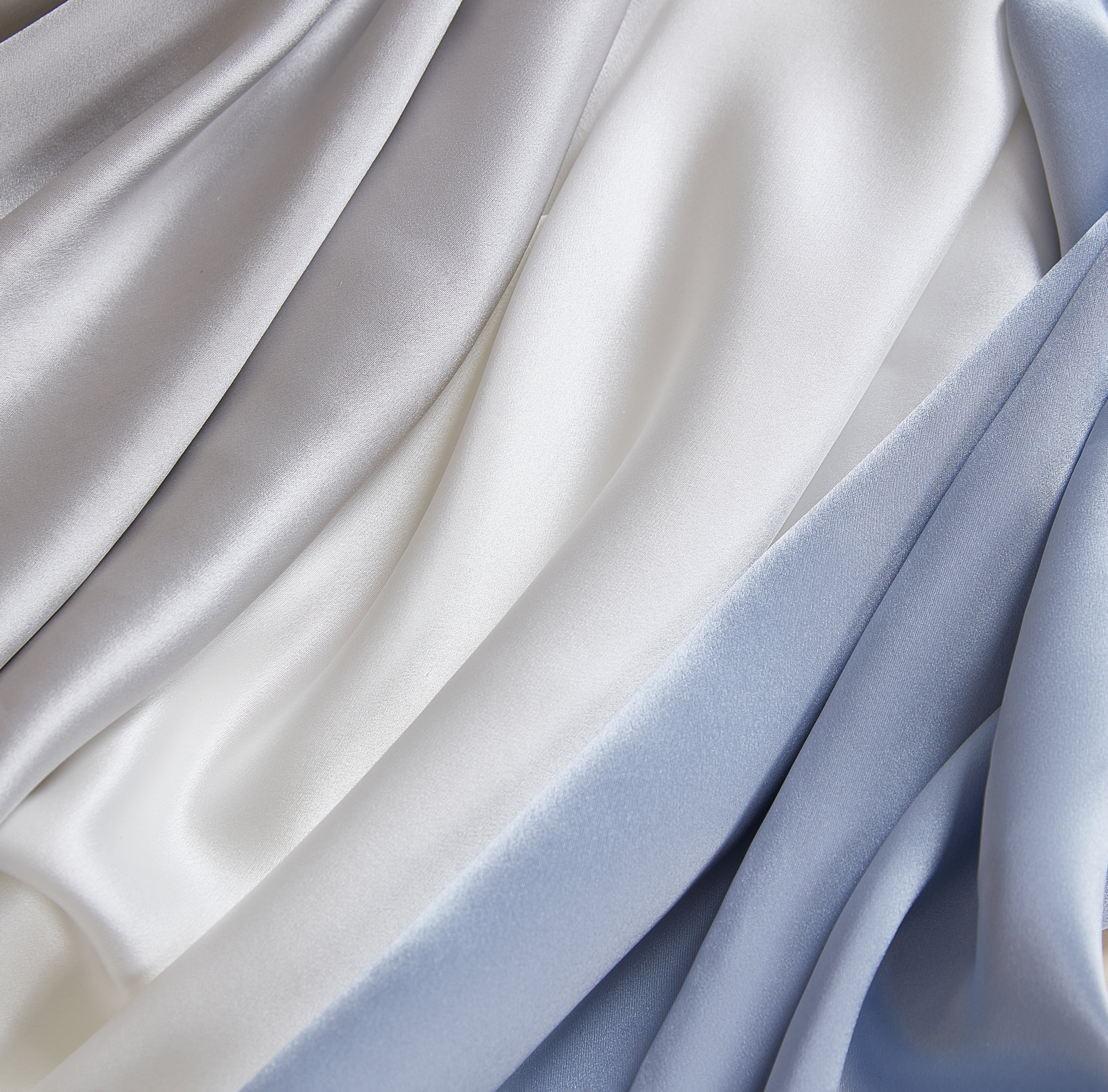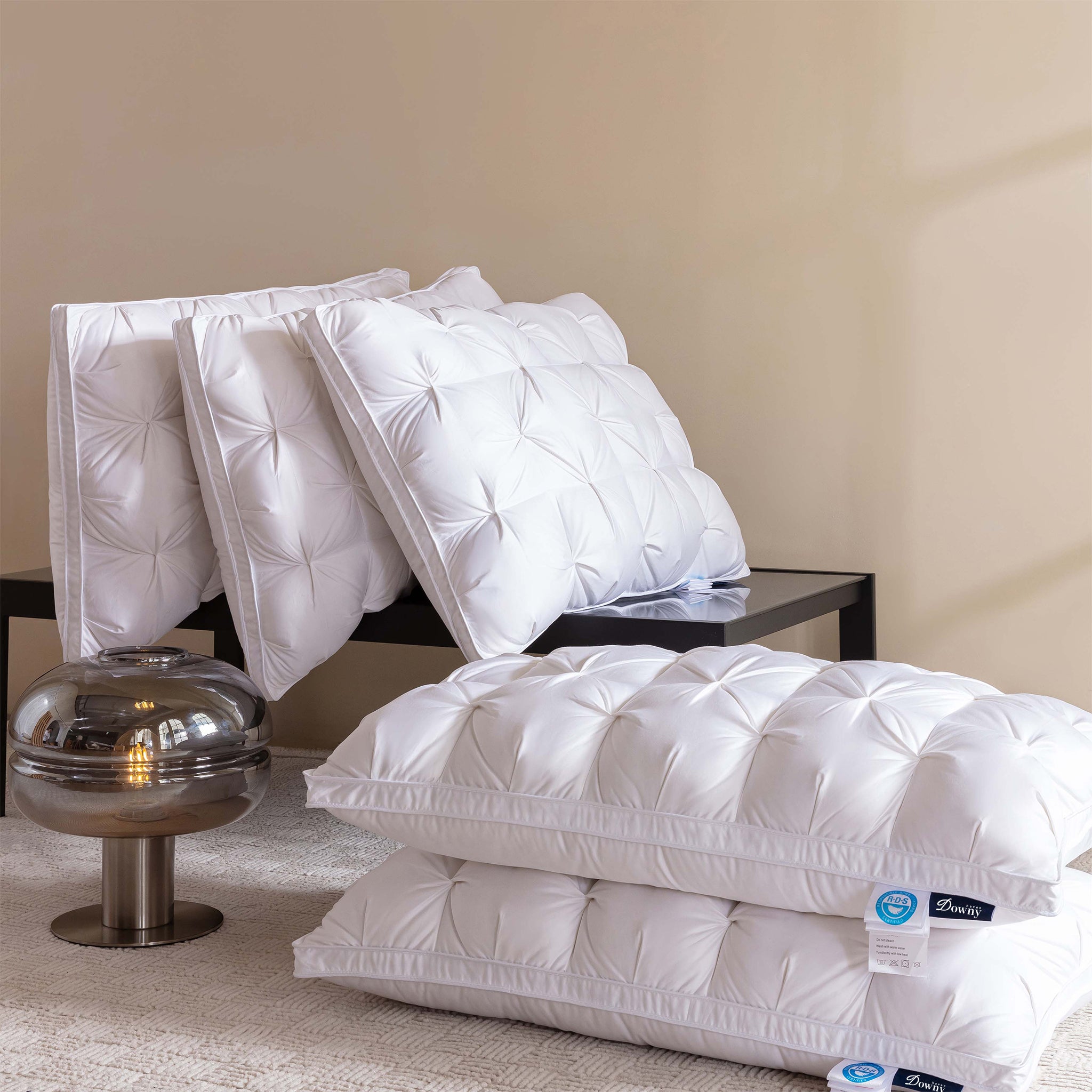Down pillow certification is a process of verifying that a down or feather-filled pillow meets certain standards for materials, construction, and ethical sourcing. The purpose is to ensure the pillow contains high-quality down and feathers from responsibly raised birds, without any undisclosed substitutes or fillers.
Key organizations that provide down pillow certification include the American Down and Feather Bureau (ADFC), IDFL (Institute for the Control and Certification of Down and Feather Contents), and the Responsible Down Standard (RDS). These groups have specific criteria for certifying down pillows, such as minimum down cluster content, maximum oxygen levels for cleanliness, and ethical animal welfare practices in sourcing the down.
Certification Standards and Requirements
Down pillow certification aims to ensure the ethical sourcing and humane treatment of birds, as well as the quality and authenticity of the down fill material. Reputable certifications have strict standards that cover various aspects, including:
Material Sourcing: Certified down must come from birds that were not subjected to live-plucking or force-feeding practices. Many certifications require traceability to the source farms.
Manufacturing Process: The down processing facilities must adhere to guidelines for hygienic practices, proper cleaning, and responsible waste management. Independent audits are often conducted.
Fill Power: Fill power, which measures the loft or fluffiness of down, is an important quality indicator. Certified down pillows typically have a minimum fill power rating, such as 550 or higher.
Down Content: Certifications specify minimum percentages for down content, ensuring truthful labeling and preventing excessive feather fiber contamination.
Some prominent certifications include:
-
Responsible Down Standard (RDS): Established by Control Union Certifications, it covers the entire supply chain and prohibits live-plucking and force-feeding.
-
Traceable Down Standard (TDS): Developed by NSF International, it focuses on traceability from the parent farm to the product's final manufacturing stage.
-
Global Traceable Down Standard (Global TDS): An initiative by major brands, retailers, and animal welfare groups, it aims to ensure ethical sourcing and responsible processing.
Manufacturers must undergo audits and meet specific criteria to obtain these certifications, providing consumers with assurance about the integrity of the down products they purchase.
Benefits of Certified Down Pillows
Certified down pillows offer several advantages that appeal to environmentally-conscious consumers seeking high-quality, ethically-sourced products. A key benefit is the assurance that the down filling meets strict standards for cleanliness, quality, and ethical sourcing from humanely-treated birds. This certification process helps eliminate concerns about live-plucking or other unethical down harvesting practices.
Certified down is meticulously cleaned and sorted, resulting in superior loft, softness, and warmth compared to lower-quality uncertified down. The certification also ensures truth in labeling, so you can trust that the pillow contains the advertised quality and ratio of down to other fillings. With proper care, certified down pillows tend to have a longer lifespan than synthetic alternatives.
From a health perspective, certified down is hypoallergenic and resistant to dust mites, mold, and mildew, making these pillows a good choice for those with allergies or sensitivities. The stringent cleaning process removes residues and contaminants found in uncertified down. The breathability of down also helps regulate temperature and prevent overheating.
Overall, investing in a certified down pillow can provide peace of mind regarding quality, ethical sourcing, longevity, and potential health benefits – making it a worthwhile choice for conscious consumers.
Identifying Certified Down Products
One of the most reliable ways to identify a certified down pillow is to look for recognized certification logos or seals on the product label, hang tag, or packaging. Major certifications like the Responsible Down Standard (RDS) and Global Traceable Down Standard (Global TDS) have distinct logos that indicate the down has been ethically sourced and the product meets strict quality standards.
In addition to logos, you may also see specific claims or statements regarding the down certification printed on the label or packaging. These claims will explicitly state that the pillow contains RDS Certified Down, Global Traceable Down, or another recognized certification.
Some brands are now incorporating QR codes or unique traceability numbers that allow you to trace the down supply chain and verify the certification status by entering the code on the certification body's website.
It's important to carefully check for these certification indicators, as many brands may use misleading marketing terms like "premium down" without actual third-party certification. Legitimate certification seals provide assurance that the down has been sourced responsibly and meets defined quality and ethical standards.
Limitations and Criticisms
Despite the benefits of down pillow certification, there are some limitations and criticisms surrounding these programs. One concern is the accuracy and thoroughness of auditing processes. While certifications aim to verify ethical sourcing and processing, some critics argue that audits may not always catch violations or inconsistencies, particularly in complex global supply chains.
Another criticism relates to animal welfare. While most certifications have standards for humane treatment, some animal rights advocates argue that any use of down involves unnecessary cruelty to birds. There are also concerns about the living conditions of birds on down farms, even when following certification guidelines.
Additionally, the proliferation of different certification labels can create confusion for consumers. With varying standards and criteria, it can be challenging to understand and compare the rigor of different certifications. Some critics argue for a more unified, industry-wide approach to down sourcing and labeling.
Finally, certified down products typically come at a premium price point, which may not be accessible for all consumers. This has led to criticism that ethical down is a luxury reserved for those with higher incomes.
Buying Certified Down Pillows
When shopping for certified down pillows, there are several factors to consider to ensure you're getting a high-quality and ethically sourced product. Here are some tips:
Tips for Buying Certified Down Pillows
-
Check for Certifications: Look for pillows that are certified by reputable organizations like the Responsible Down Standard (RDS), Global Traceable Down Standard (Global TDS), or DOWNMARK. These certifications ensure that the down is sourced from birds that have not been subjected to unnecessary harm.
-
Read Labels Carefully: Scrutinize the labels on the pillow packaging to ensure that it clearly states the certification and the percentage of down fill. Higher down content typically means a fluffier, more durable pillow.
-
Consider Trusted Brands: Reputable brands like Parachute, Coyuchi, and L.L. Bean are known for their commitment to using certified down and maintaining transparency in their supply chains.
-
Online vs. In-Store: While you can find certified down pillows both online and in physical stores, online retailers often provide more detailed information about the certifications and sourcing practices.
-
Price Comparisons: Certified down pillows tend to be more expensive than non-certified options, but prices can vary significantly. Compare prices across different retailers to find the best value.
-
Additional Certifications: Look for pillows that have additional certifications, such as OEKO-TEX (for chemical safety) or GOTS (for organic materials), which can further ensure the product's quality and sustainability.
When shopping for certified down pillows, it's essential to prioritize reputable certifications, read labels carefully, and consider trusted brands. While these pillows may come at a higher price point, they offer peace of mind and contribute to ethical and sustainable practices in the down industry.



